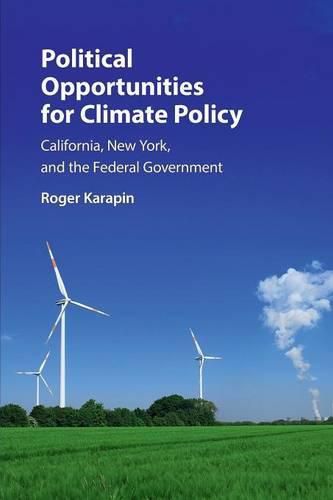Readings Newsletter
Become a Readings Member to make your shopping experience even easier.
Sign in or sign up for free!
You’re not far away from qualifying for FREE standard shipping within Australia
You’ve qualified for FREE standard shipping within Australia
The cart is loading…






Analysis of climate change policies focuses mainly on the prospects for international agreements or how climate policies should be designed. Yet effective domestic climate policies are essential to any global solution, and we know too little about how and why such policies are adopted. Political Opportunities for Climate Policy examines in depth the causes of effective climate policies in the United States, using a statistical analysis of all fifty states and long-term case studies of California, New York, and the federal government. Roger Karapin analyzes twenty-two episodes in which policies were adopted, blocked, or reversed. He shows that actors and events have positively affected climate policy making, despite the constraints presented by political institutions and powerful fossil fuel industries. Climate policy advocates have succeeded when they mobilized vigorously and astutely during windows of opportunity - which opened when events converged to raise both problem awareness and the political commitment to address them.
$9.00 standard shipping within Australia
FREE standard shipping within Australia for orders over $100.00
Express & International shipping calculated at checkout
Analysis of climate change policies focuses mainly on the prospects for international agreements or how climate policies should be designed. Yet effective domestic climate policies are essential to any global solution, and we know too little about how and why such policies are adopted. Political Opportunities for Climate Policy examines in depth the causes of effective climate policies in the United States, using a statistical analysis of all fifty states and long-term case studies of California, New York, and the federal government. Roger Karapin analyzes twenty-two episodes in which policies were adopted, blocked, or reversed. He shows that actors and events have positively affected climate policy making, despite the constraints presented by political institutions and powerful fossil fuel industries. Climate policy advocates have succeeded when they mobilized vigorously and astutely during windows of opportunity - which opened when events converged to raise both problem awareness and the political commitment to address them.